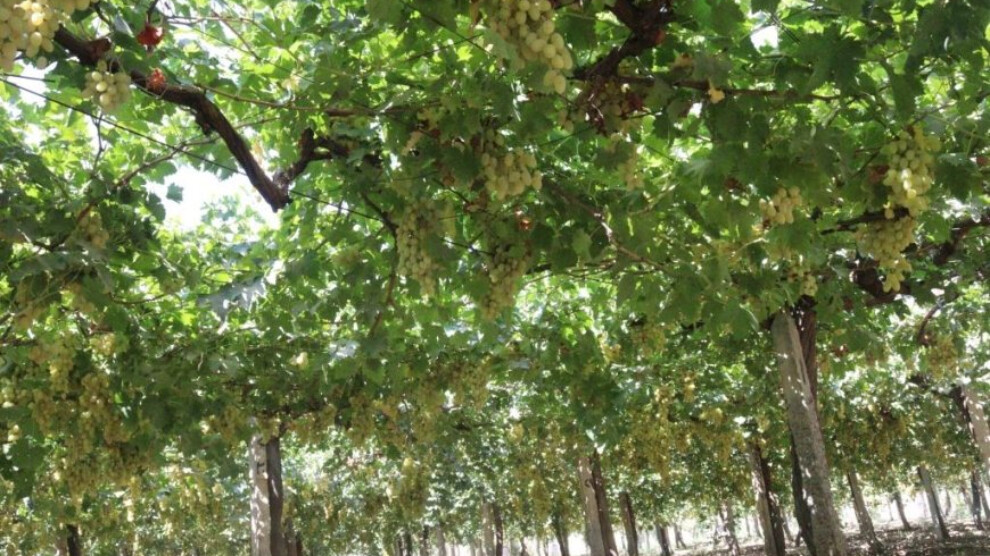Vineyards in Raqqa and Tabqa, an important source of income
In the Raqqa and Tabqa cantons, vineyards are considered important as a source of income, and help meet the needs of families.
In the Raqqa and Tabqa cantons, vineyards are considered important as a source of income, and help meet the needs of families.

In the Northern and Eastern Syria region, vineyards hold an important place in the local economy. In the Tabqa and Raqqa regions, known for their climate, water and fertile soil, vineyards are an important source of income, along with wheat, corn, cotton, fishing and livestock.
The products obtained both meet the needs of families and are sent to other regions.
Ebdulbasit El Ibrahim, who has vineyards in the Kisrat town of Raqqa Canton, told ANHA that vineyards are an old culture in the region. He underlined that there is a tree in front of every house and that this has turned into large production projects over time.
El Ibrahim said that projects have been developed for vineyards in Raqqa Canton for over 20 years and added: “In recent years, grape tree planting has developed. The collected products are sufficient for the canton and we send them to the entire region.”
In the cantons of Tabqa and Raqqa, 4 to 6 tons of product are obtained from one acre of vineyards and one kilo of grapes is sold for between 4 and 6 thousand Syrian liras.
There are two types of grapes in Tabqa and Raqqa; one sweet red, and the other yellow. However, new grape varieties have also been planted recently.
Agricultural Engineer Ibrahim El Ehmed from the Mensura city of Tabqa Canton planted 60 grape trees of white sham, red, sweet and Italian Moscato varieties on 14 acres of land.
Engineer El Ehmed said that Queen, Horani and Italian Moscato grapes have just started to be planted and developed in the region.
Eh Ehmed added that the land needs to be constantly ploughed, fertilized and sprayed in order to plant vineyards. The engineer added that no disease was seen in the vineyards this year and therefore the yield was good. Last year, worm infestation and whitening of leaves (fungal) diseases were seen in the vineyards.